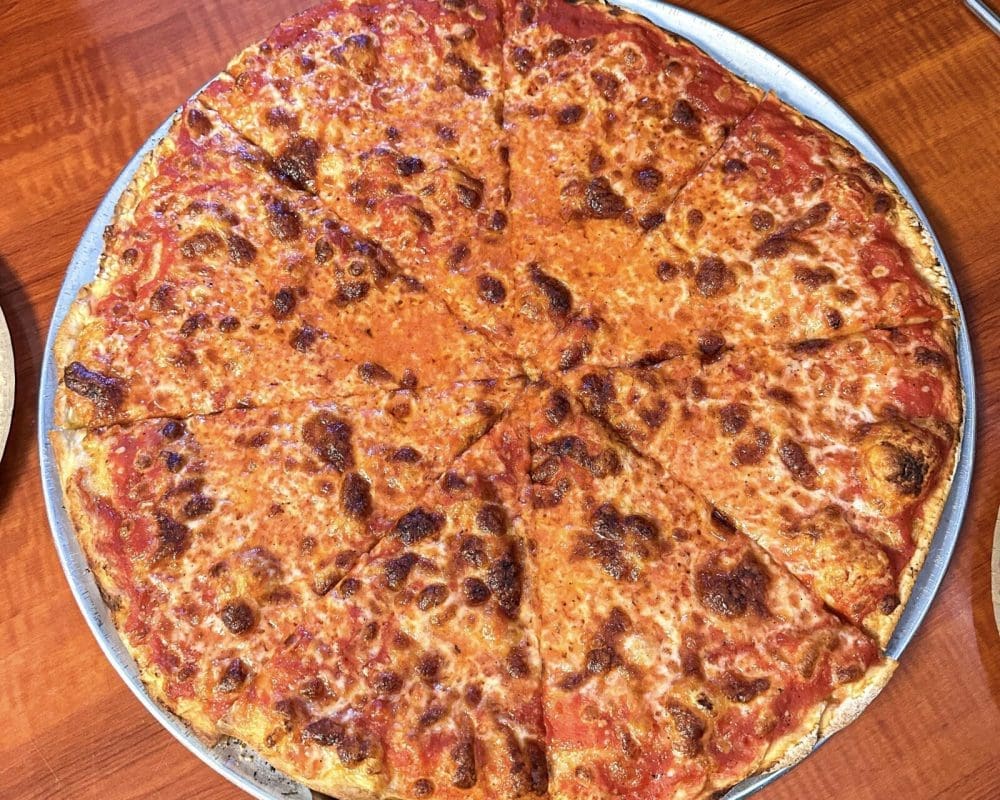If you’re from New Jersey, you’ve probably heard the claim before that NJ pizza (and bagels) is so good because of the water. The idea is that the compound makeup of ours and New York’s tap water is ideal for making pizza and bagel dough, with increased minerality making for a dough that is both crisp and chewy—a signature of New York-style pizza. This claim has made the rounds over the years, providing many out-of-staters with a culprit to blame their mediocre pizza on. We all know someone who lives and dies by this deposition, or maybe you’ve caught wind of a pizzeria outside of the Northeast that brings in water from NJ or New York for their dough, “It’s just as good, bro, trust me.” So, is this at all true? Is New York and New Jersey water really the best for making pizza and bagels?
Good Pizza Is All About the Water… or Is it?
The short answer is no. Water has very little to do with why pizza in NJ and New York is so good. However, there is at least a slight difference in making dough with mineral-rich water versus another option. Northeast water tends to be higher in Calcium and Magnesium, which, when dissolved in water, can aid the cohesion of proteins in flour, resulting in a more robust gluten framework. However, acclaimed food writer and chef, Kenji López-Alt wasn’t convinced. In 2019 he set out to conduct an experiment with the main question being this: Are the effects of minerals dissolved in water profound enough to make an actual difference in regards to pizza dough? A difference so apparent, that thousands, if not millions of people are allegedly able to tell?
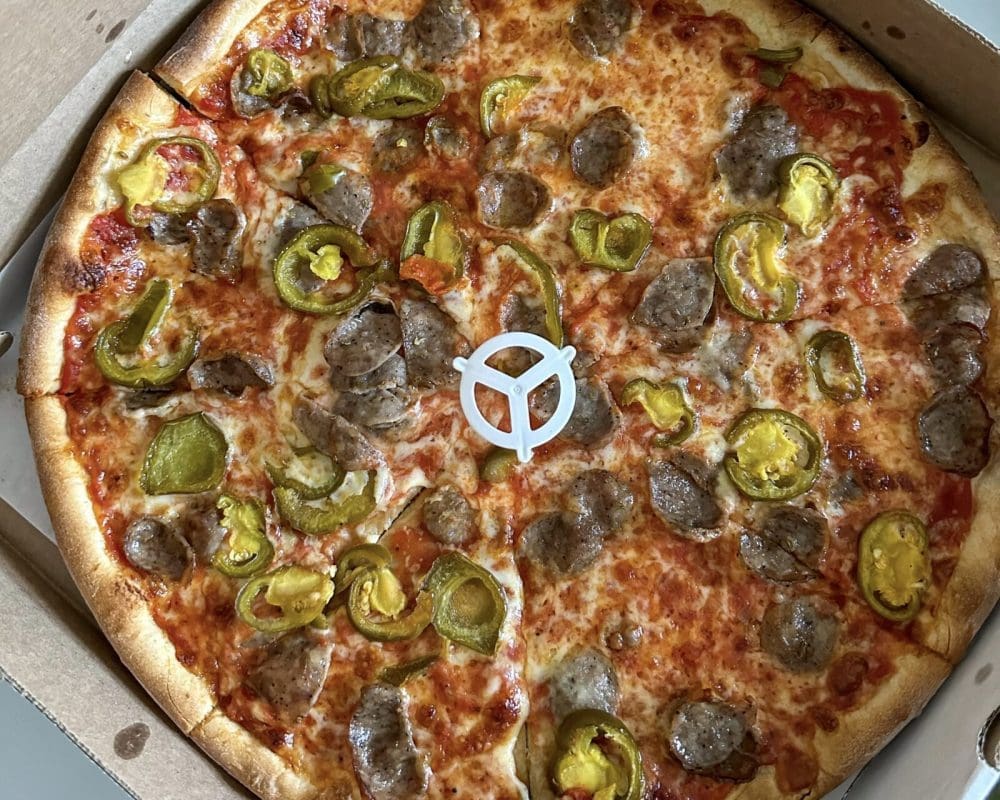
To go forth with the experiment, López-Alt would make six different pizzas with six different types of water, including NYC tap water, which has a minerality of around 60 parts per million (ppm) and is considered moderate in terms of water hardness. The other five waters came from bottles, with the lowest in minerality being Aquafina at 10 ppm and the highest being Evian at 370 ppm.
If the initial claim is true, then Aquafina would make for a soft and tender dough, while the Evian would make for a crisp and chewy pizza.
To eliminate bias, López-Alt handed the bottles to Pizzaiolo Mathieu Palombino, who then made six pizzas with six identical dough recipes plus two more, doubling up on both the tap water and Evian dough. The two would then test each pizza blindly before revealing which water each contained at the very end. If the difference that higher minerality provides is really that discernible, then the pair of tap water pizzas and Evian pizzas would be noted right next to each other in the tasting.
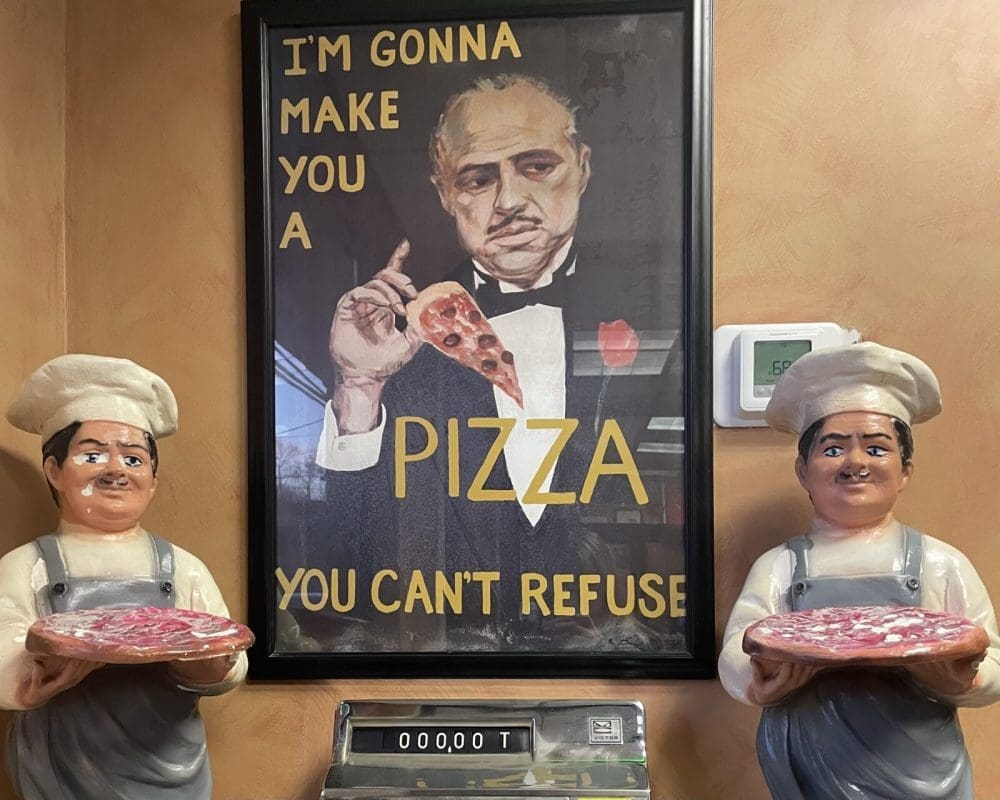
After hours of tasting and testing, the duo revealed which water each pizza used and graphed the results. Higher minerality water would presumably be crisper on the scale, while lower minerality water would be more tender and soft. The results were essentially non-conclusive, with such little change between the waters that a regular palate could never distinguish the difference.
I highly recommend reading the full study, which can be found here.
The Real Reason NJ Pizza Is the Best
I love to reference this study because, well, I’m a contrarian. For my entire life, I have heard this myth about the water making our pizza so good, but I never fully bought in. To me, it always seemed like a lame excuse to compensate for the lousy pizza that exists in other parts of the country. However, we are still left without a definite answer as to why NJ and NYC pizza runs laps around the rest of the competition. Through years of pizza-making and eating, I have come to the conclusion as to why I think that’s the case.
Bad pizzerias simply don’t last in Jersey—the competition is far too high. The same goes for New York, although I’m still convinced the pizza is better on this side of the Hudson. Stiff competition means that every pizzeria, whether it be a famous spot or just a typical slice shop, has to put out a good slice of pizza at the very least to keep up. In other parts of the US, pizzeria abundance is far scarcer—Dominos or Pizza Hut tends to be the go-to spot for many. Because of the lack of challenge, along with a local palate that isn’t used to great pizza, mediocre options are able to remain open and busy. This isn’t to say that all pizza is bad in these parts of the country, but it is to say that the general population is probably less particular about their pizza than us New Jerseyans.
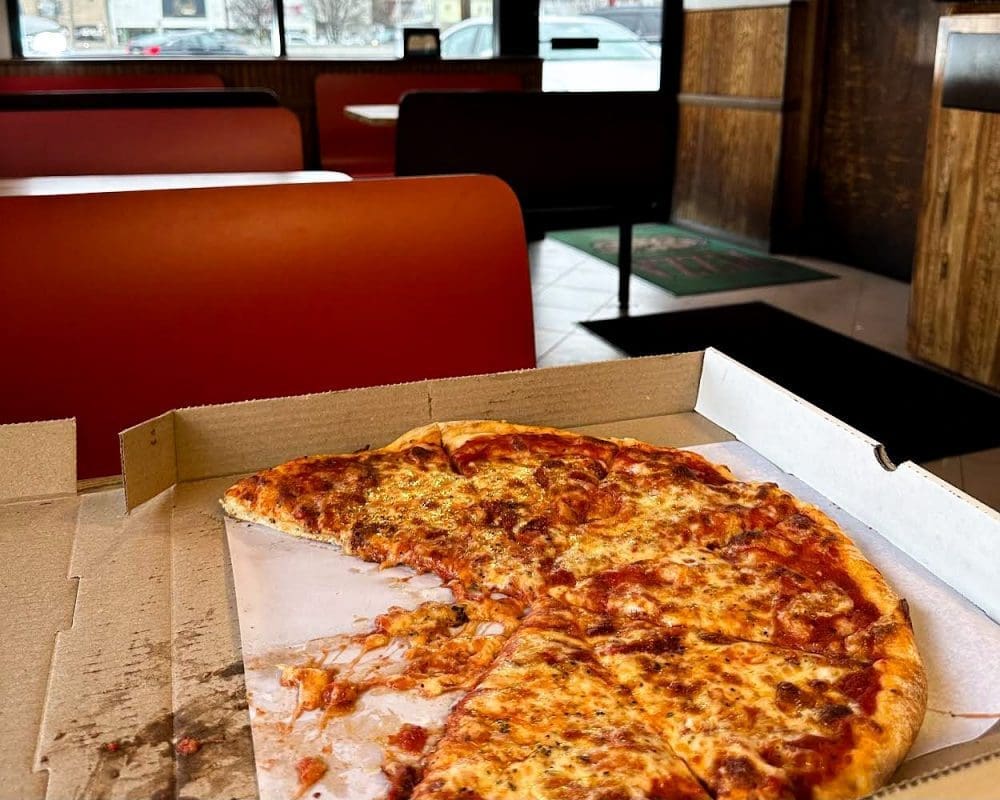
But, what about the guy who spent 30-some-odd years making pizza in Jersey before moving to Florida, where his pizza just doesn’t come out the same? It has to be the water in that case, right? No.
A dough recipe is not one-size-fits-all. When you google “New York Pizza Recipe” you can’t just copy the recipe and expect to get the same results. Instead, you have to trial the dough and adjust it for your local climate. In Florida, for example, the high humidity means that you have to greatly tweak dough recipes. If the NJ pizza recipe you know like the back of your hand uses a 65 percent hydration (meaning 65 grams of water for every 100 grams of flour), you will have to lower the amount of water added as the dough will absorb extra moisture from the air.
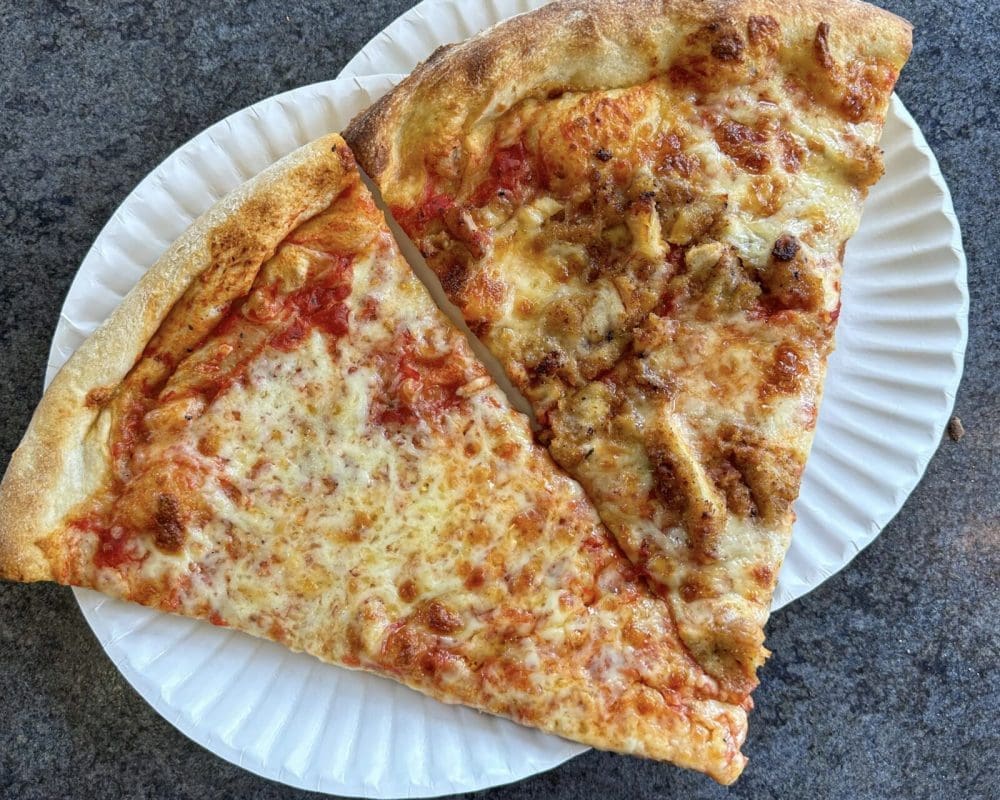
Pizza is much more complex than we might think, but NJ and NYC have it figured out. While many have spread the claim that NJ tap water makes better pizza, a closer look reveals that to be mostly a myth. Instead, local climates and competition seems to have the greatest effect on a pizza, meaning that a skilled pizza maker can survive anywhere. Luckily, with the increase of pizza obsessives on social media and the like, good pizza is becoming more available, with plenty of world-class New York-style slice shops opening on the West Coast, in the South and in many other pizza wastelands. Next time one of your friends or family members is going on about how it’s our water that makes the difference, you know how to respond.
Now, to test the theory on bagels…
Peter Candia is the Food + Drink Editor at New Jersey Digest. A graduate of The Culinary Institute of America, Peter found a passion for writing midway through school and never looked back. He is a former line cook, server and bartender at top-rated restaurants in the tri-state area. In addition to food, Peter enjoys politics, music, sports and anything New Jersey.


